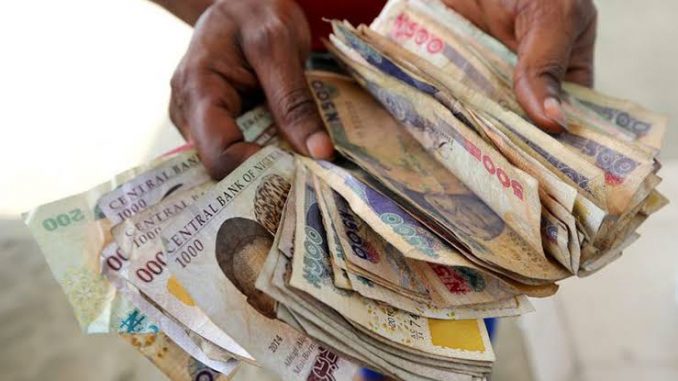
Nigerians and others who trade in the country’s currency, naira, can now heave a sigh of relief with the rebound in oil prices which has given naira a reprieve, easing investors’ concern that a steep devaluation may be unavoidable.
Brent crude prices have doubled since hitting a two-decade low in April, and traded close to $40 a barrel on Wednesday. Since Nigeria relies on oil sales for 90% of export earnings, that’s helped the country’s central bank to replenish its stock of foreign-currency reserves.
Twelve-month naira forwards traded at 454.50 per dollar at at 11.43 a.m Wednesday, down from a high 522.56 naira to the dollar on April 20. The currency traded at 388 naira to the dollar in the spot market.
The gap between the official and black-market rate has also narrowed. The currency has appreciated to 445 naira per dollar on the black market, from 460 naira last week, after the Central Bank of Nigeria resumed selling dollars to small businesses.
The regulator had stopped selling greenbacks to manufacturers and foreign investors seeking to repatriate funds at the height of the oil crisis, in a bid to preserve reserves and the value of the naira.
ALSO READ: Nigeria’s GDP grew by 1.87% in first quarter — NBS
“Remedial policy action taken by the central bank” and increased government borrowing will “help contain liquidity pressures,” said Mahmoud Harb, a director at Fitch Ratings. The Nigerian government obtained a $3.4 billion loan from the International Monetary Fund to help counter the economic impact of the coronavirus pandemic.
The Central Bank of Nigeria’s foreign-exchange reserves climbed to $36.6 billion as of June 1, after falling to a two-year low of $33.4 billion in April.
The naira is not yet out of the woods, however. A large current-account deficit, capital outflows and resistance to overhauling the exchange-rate framework may cause a drop in international reserves to $23.3 billion by end-2020, Fitch forecasts, leaving the central bank with less ammunition to defend the currency.
The naira’s spot-market rate is 10% overvalued as measured by its current real effective exchange rate relative to the five-year average, according to data compiled by Bloomberg.
“The foreign-exchange-risk fears will continue to linger, given there are no convictions for a robust and sustained recovery in oil prices,” said Gbolahan Taiwo, an economist at Stanbic IBTC.




